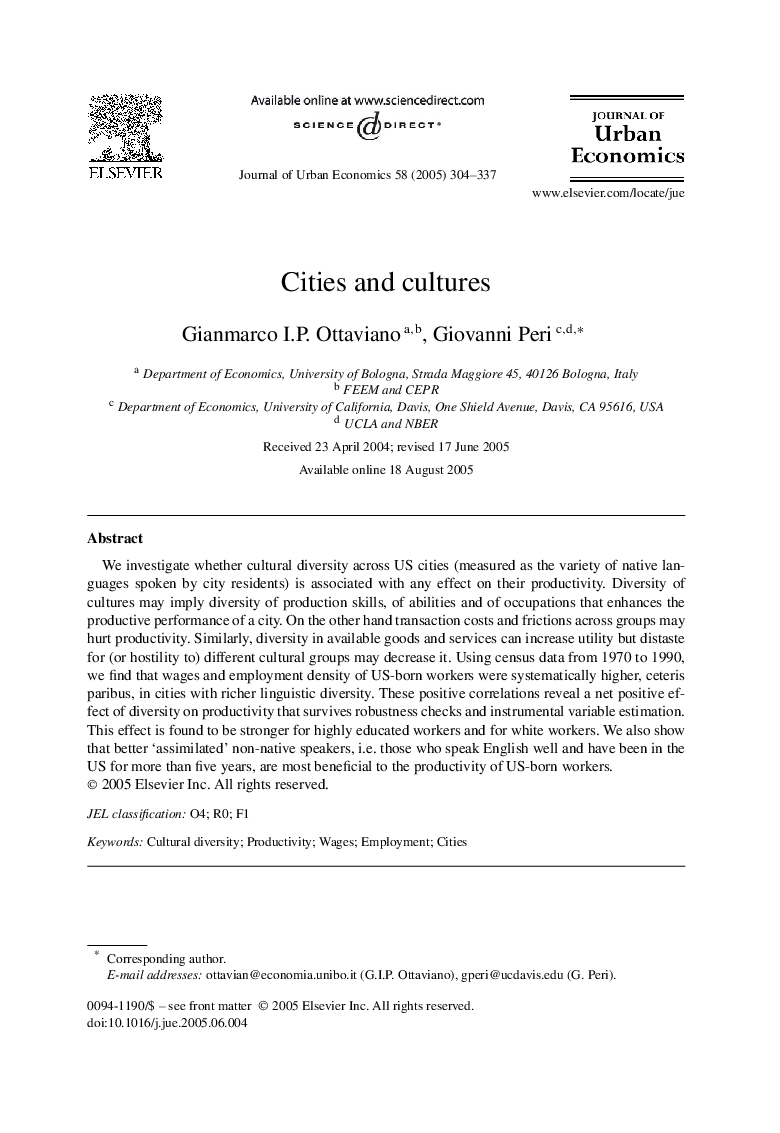| Article ID | Journal | Published Year | Pages | File Type |
|---|---|---|---|---|
| 10479751 | Journal of Urban Economics | 2005 | 34 Pages |
Abstract
We investigate whether cultural diversity across US cities (measured as the variety of native languages spoken by city residents) is associated with any effect on their productivity. Diversity of cultures may imply diversity of production skills, of abilities and of occupations that enhances the productive performance of a city. On the other hand transaction costs and frictions across groups may hurt productivity. Similarly, diversity in available goods and services can increase utility but distaste for (or hostility to) different cultural groups may decrease it. Using census data from 1970 to 1990, we find that wages and employment density of US-born workers were systematically higher, ceteris paribus, in cities with richer linguistic diversity. These positive correlations reveal a net positive effect of diversity on productivity that survives robustness checks and instrumental variable estimation. This effect is found to be stronger for highly educated workers and for white workers. We also show that better 'assimilated' non-native speakers, i.e. those who speak English well and have been in the US for more than five years, are most beneficial to the productivity of US-born workers.
Related Topics
Social Sciences and Humanities
Economics, Econometrics and Finance
Economics and Econometrics
Authors
Gianmarco I.P. Ottaviano, Giovanni Peri,
